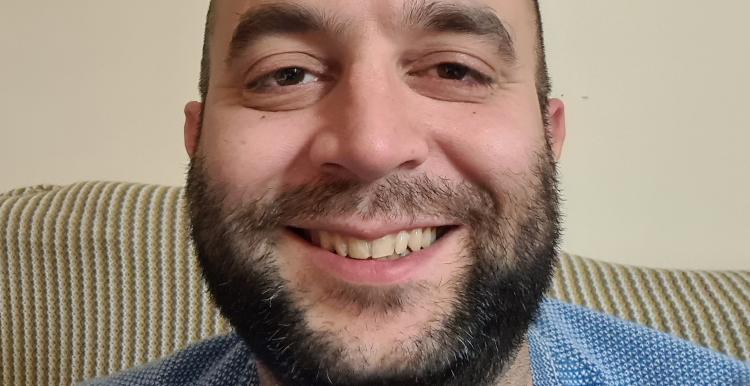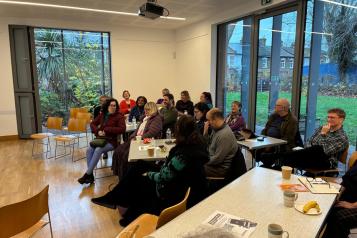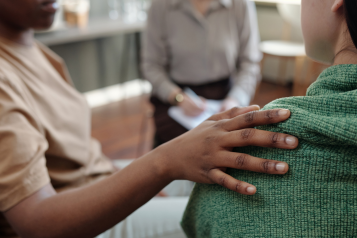Mark's story

I first realised that I was suffering from depression during my second year at university. I had come back for the Christmas holidays and couldn’t sleep at all one night. My brain was racing away with all these negative thoughts and for the next few days I struggled to function, not being able to eat and I couldn’t focus on anything. It was very scary and I seriously considered dropping out of university as I felt I couldn’t carry on as normal. I was ultimately able to carry on my studies and overall I look back at that time in my life fondly. However, the incident, more extreme though it was, made me realise that this fit a pattern that had begun much earlier in my life.
I was always a sensitive child. I would let negative experiences and emotions overwhelm my brain, pushing out all the positives.
I also fretted about the ‘big questions’. Why am I here, what’s my purpose? Interesting stuff, but not necessarily very healthy when you have an anxious or depressive mindset. It can lead you down some dark alleys.
It was after leaving university that my depression started to become a regular feature. The previous few years had been, overall, very happy and fulfilling. However, in the big wide world, I found myself rudderless; I had knockback after knockback, and this was something I wasn’t used to. I had no clear direction in my life and began to get more and more despondent. I started to feel like the best days of my life were behind me, which is crazy thinking at the age of 25. Depression really started to take hold. As far as I was concerned, there was no future, no point and no meaning. I could not see the positives in anything.
When you fall into a deep depression it is a very dark place. You don’t see any way out, but even worse, you don’t see any reason to try and get better.
The worst part for me was that when I was depressed, I felt that I saw everything clearly, I could see life for what it was, it made complete sense. I could see the objective truth of it all, and there was no way of unseeing it. I started self-medicating, using alcohol to dull my mind so that things didn’t seem so painful. In reality, it made things a lot worse of course. I would spend even more time alone, ruminating and then the next morning feeling very, very ashamed and guilty.
Recovery was a long road with many peaks and troughs. I tried many therapists and support groups often without much success. It is very hard, one of the big problems with depression is you don’t feel like you can ever get better, so what’s the point in trying? Sometimes I would feel more hopeful and make improvements, but I would always feel like depression was still there, lurking over my shoulder, just waiting to take hold. Invariably something would happen, and I would turn to drink and soon enough I had fallen back into my old patterns. However, over time, I found a couple of great counsellors.
I had for so many years bottled up my feelings and distanced myself from my friends and colleagues, exacerbating my mental health problems.
I also started to acknowledge the role that drink played in keeping me stuck in a rut. I had thought of myself as someone who was depressed and so drank, but not someone who had a problem with drink. Coming to terms with my drinking problem was difficult, but a vital part of my recovery. For the last few years I have been in a much better place. I still have ups and downs like everyone else but I no longer fear that depression will continue to define my life.
I am very careful to practise all the techniques I have learnt over time such as self-care, staying active, mindfulness and the importance of staying connected to friends and family.
I still see a counsellor every few weeks and take medication. But having lived with long bouts of sometimes severe depression and coming out the other end I now feel like I am ready to face life challenges without trepidation and to embrace all of its opportunities. I do feel like I am a better person as a result.
I now look forward, to the future and all the possibilities that it offers rather than dwelling on the past and the years spent struggling.
I still think about the big questions and why we are here. I still don’t have any answers, but it doesn’t send me into a state of despair that it used to, in fact I feel a sense of awe and wonder about the world around me. Nothing has really changed in my world view, it’s just how I respond to life that has changed, I am no longer depressed.
Support
If you have been upset by anything you have read or listened to, please phone the Samaritans on 116 123, text Shout on 85258 or find out more about Kingston mental health services here.


